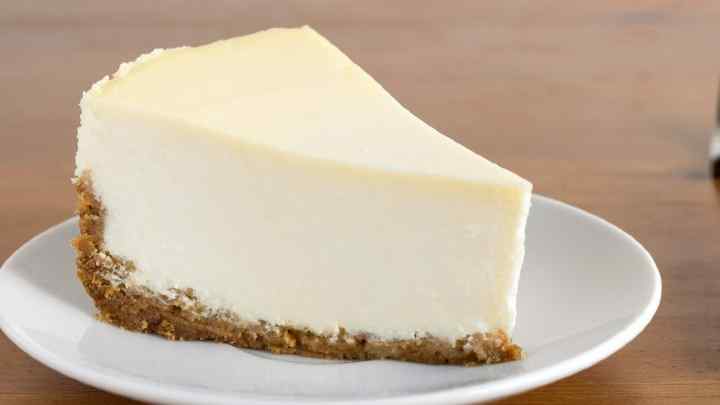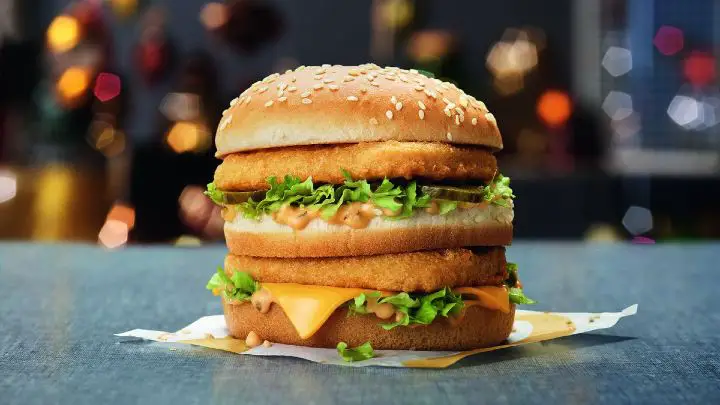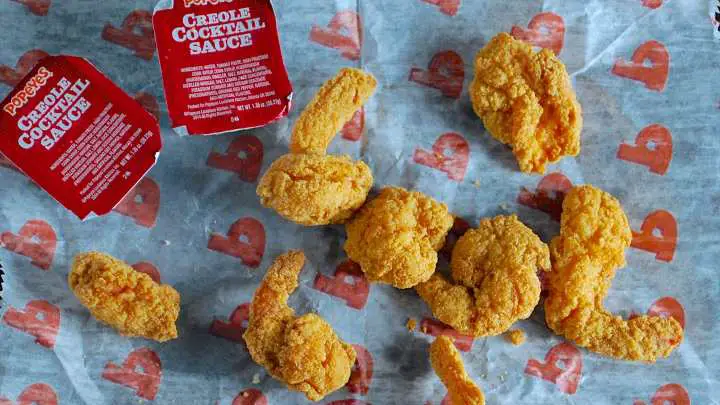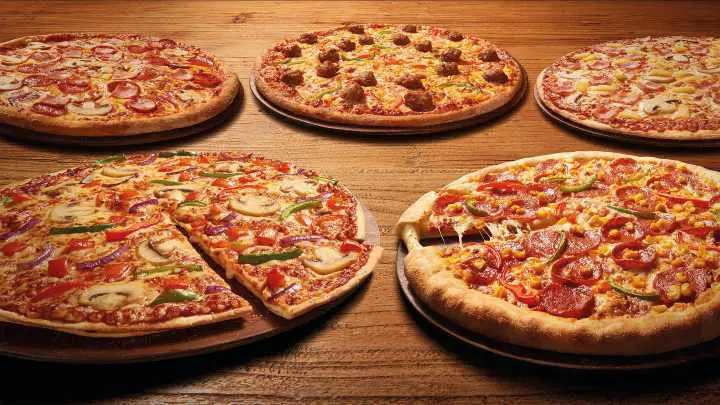Cheesecake is not a healthy food for you, and it is full of a large amount of calories that are present in even a small slice. It is also high in sugar, sodium, and saturated fat.
A slice of Cheesecake can take up to 12 hours for it to break down during digestion due to the high-fat contents in the egg and Cream cheese used. A Cheesecake also contains about 250g, 18g of fat, and 10g of saturated fat.
In this article, you shall learn more about the benefits and side effects of consuming Cheesecakes and how to make your Cheesecakes healthier for consumption.
Overview of Cheesecake
A Cheesecake is a custard pie with crust all around. You can make Cheesecake by pouring ingredients into a set crust before allowing it to bake. They are an excellent source of vitamin A and Riboflavin, also known as Vitamin B2.
Cheesecake is a baked dessert with a top layer made of Cream cheese, sugar, and egg, and the bottom layer is the biscuit crust.
The sugar present in Cheesecake is high. One Cheesecake has about 17.5g of sugar. Given that the recommended intake of sugar in a day is between 25 – 35g for adults, taking a whole Cheesecake in one sitting already equates between 30 to 75% of the sugar you should consume in a day.
SEE: Delicious Cheesecake Factory Gluten Free Menu
Benefits of Eating Cheesecakes
1. Contains Antioxidants
Cheesecakes contain antioxidants that help the body to fight and repair damages caused by oxidizing agents to the cells in your body and improve skin health.
SEE: Some Tips To Keeping Your Skin Healthy
2. Contains Magnesium and Copper
Magnesium and copper are some of the nutrients you gain from Cheesecakes, and these nutrients help support blood pressure and heart rate control.
3. Boost Immune System
The vitamins obtained from consuming Cheesecake can help defend the integrity of several tissues, such as your skin, intestine, and lungs.
Side Effects of Eating Cheesecakes
1. Risk of Clogged Arteries
Cheesecakes are full of saturated fat, and excess intake may result in clogged arteries, also called “Atherosclerosis,” which may further lead to heart and other heart-related diseases.
2. Risk of Hypernatremia
Hypernatremia is a medical term to describe the excess amount of sodium in the body. It is an imbalance in your body’s electrolytes and can cause serious problems.
3. Excess Weight Gain
The high sugar level present in Cheesecake may lead to excess weight gain and heart disease, and type 2 diabetes.
SEE: If Green tea is good for weight loss
4. Hard to Digest
As earlier mentioned, it takes the body up to 12 hours to digest a whole slice of Cheesecake, and some of the effects of slow digestion include vomiting, bloating, and stomach pain.
5. Induces Overeating
How? The sugar in Cheesecakes does not stimulate insulin. Because of this, the “hunger hormone,” also known as ghrelin, is not suppressed, thus increasing your urge to eat more and exposing you to various health risks allocated to eating Cheesecakes.
Some Other Healthy Desserts You Can Have Instead of Cheesecakes
In place of Cheesecakes, you can try out some other desserts that are healthier, such as;
- Avocado chocolate pudding
- Black bean brownies
- Fruit salad
- Assorted berries
- Dark chocolate avocado truffles.
Some Other Unhealthy Desserts You Should Abstain From
In addition to Cheesecakes, some other desserts you should abstain from are;
- Carrot cake
- Banana split
- Molten lava cake.
SEE: Creamy Desserts on Jeni’s Ice Cream Menu
How to Make Your Cheesecake Healthier
Please note that you can make your Cheesecake healthier but not 100% healthy. It would be best to make your Cheesecake instead of buying commercially produced versions. Making your Cheesecake yourself allows you to moderate the ingredients. Some of the moderations you can make are;
- Reducing the sugar contents
- Removing or minimizing the crust used
- Use low-fat or fat-free cream cheese or try other alternatives like cottage cheese or Greek yogurt.
- Try using healthy toppings such as nuts or fresh fruits.
Fun Facts About Cheesecakes
1. Initially, wheat and flour were vital ingredients in making Cheesecakes, whereas now wheat and flour are not used in present recipes.
2. Cheesecake is used as a wedding and ceremonial cake in Greece.
3. You can try different fruits alongside your Cheesecake, such as mango and figs.
4. some Cheesecakes are made without being baked.
FAQs
Should a cheesecake be refrigerated?
Yes, a cheesecake can be refrigerated. When you store it properly, a Cheesecake can last up to 2 or 3 months in the freezer.
Which exercise can you do to help burn calories gotten from eating Cheesecakes?
You can try running for at least 50mins, and this is a fast way of burning calories. You can also try brisk walking for 2 hours or more.
Is Cheesecake good for weight loss?
No, Cheesecakes have a high amount of saturated fat and sugar, which would even cause weight gain instead of loss.
Are Cheesecakes healthier than a regular cakes?
No, they are not. A regular cake contains 30% fewer calories than Cheesecakes, and that makes the cake a preferable option for consumption.
Conclusion: Is Cheesecake Bad for You?
Cheesecakes are a diet high in fat, these fats can increase your cholesterol level, and risk of heart disease and can also increase your waistline. It is best to consume in moderation. Remember that occasional and moderate consumption is not likely to do any long-term damage. So you can still enjoy your delicious Cheesecakes once in a while.
Commercially produced cheesecake is not a healthy option. There are far too many of the wrong ingredients to suggest any real health benefits from consumption. Nevertheless, we all have a claim to enjoy this treat once in a while. The reality is, that there are several diverse takes on cheesecakes all over the globe.
If you are worried about the gluten in commercially produced cheesecakes then you should Check out the delicious Cheesecake factory gluten-free menu.
I hope you enjoyed this article. Thank you for your time.







